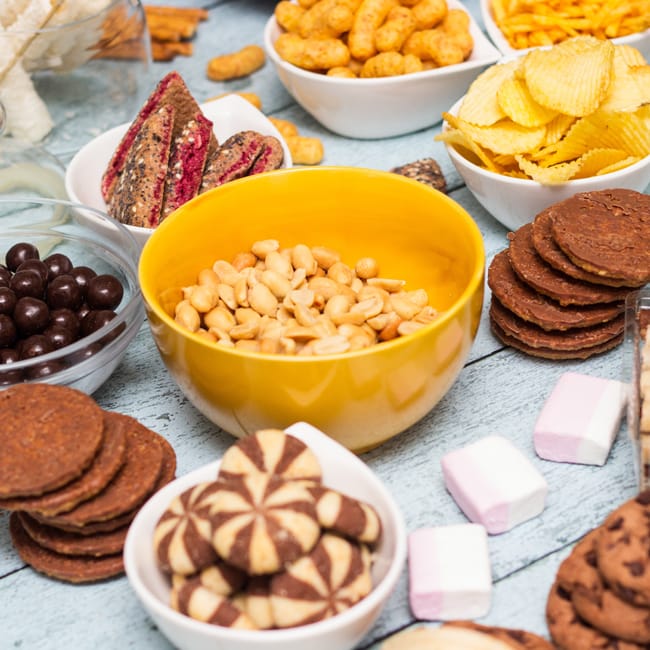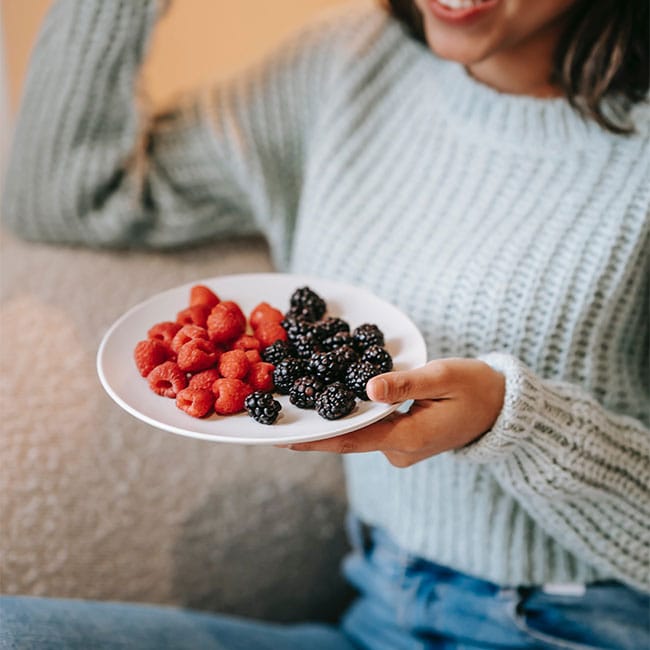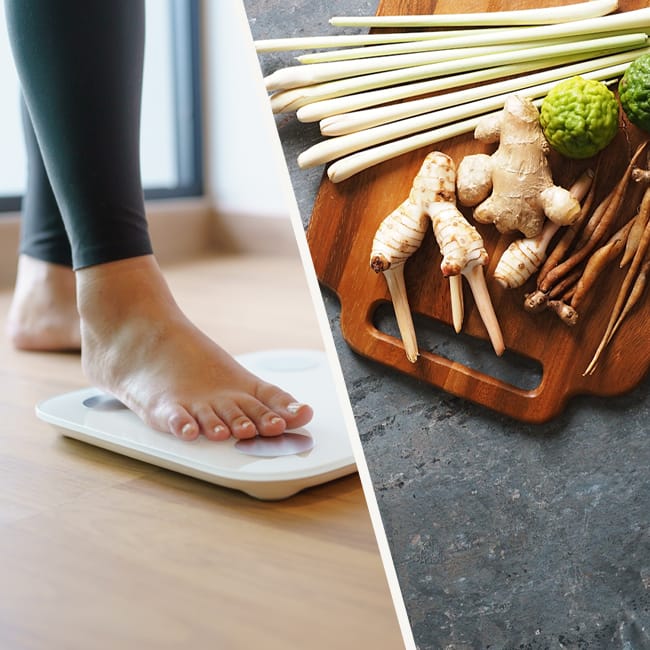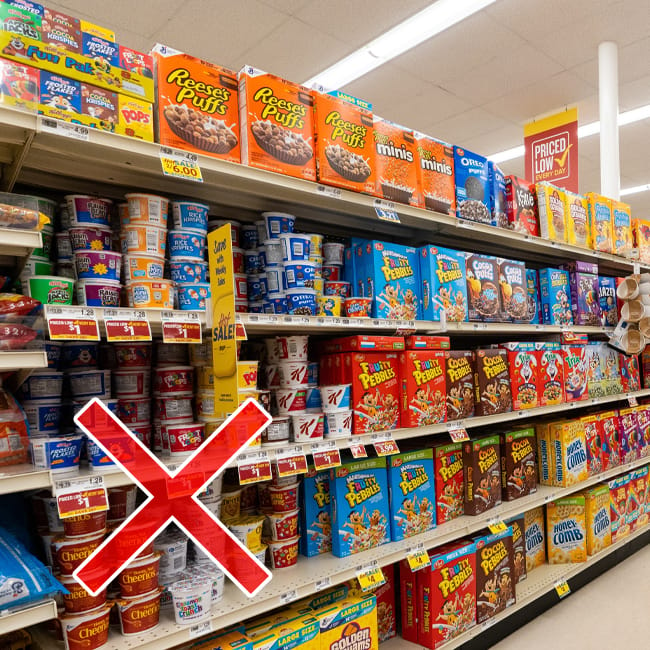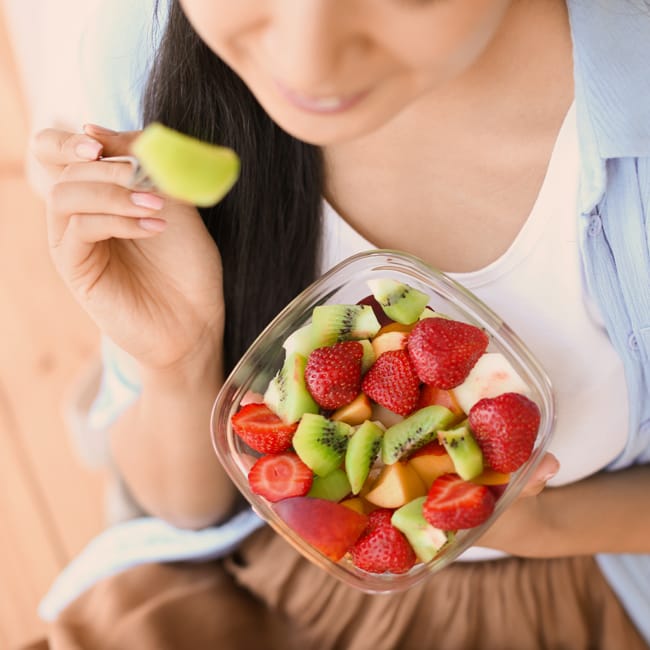Fiber is important for healthy digestion, helping you feel satiated, and keeping your blood sugar in check. Additionally, fiber-filled foods can greatly aid your weight loss journey, so we checked in with health and nutrition experts to learn more about one healthy and versatile food with ample fiber. Read on for tips and suggestions when it comes to healthy eating over 40 and weight loss from Jesse Feder, RDN, CPT, registered dietitian and certified personal trainer and registered dietitians Dana Ellis Hunnes, PhD, MPH, RD, and Amy Richter, MS, RDN.


How Raspberries Can Provide Ample Fiber
Snacking on raspberries throughout the day can give you many benefits for your overall health and gut as well as support for your weight loss goals, Richter says. “Raspberries are some of the highest fiber fruits out there,” she explains. According to Richter, 1 cup of raspberries has 8 grams of fiber. “This is nearly 30% of your fiber needs for the day,” she says, making this a great choice for a healthy snack that can cater to your sweet tooth without the worries of weight gain.
She stresses that fruits like raspberries are your “best bet for high-fiber foods that won't push you over your calorie limit for weight loss.” Hunnes agrees and says that adding berries to “non-dairy unsweetened (or lightly sweetened) yogurt such as soy yogurt” can be a fun way to feature this high-fiber snack. Yogurt (and especially Greek yogurt) has been long linked to healthier digestion and gut health. Raspberries are incredibly versatile as well, these experts say, and can be added to smoothies, salads, cereals, and other daily meals.
Feder says he "always recommends" to his clients that they should eat berries "every day" for more fiber and healthy weight loss. Berries such as raspberries in particular, he says, "contain high levels of antioxidants which can help reduce inflammation throughout the body." They also contain high amounts of vitamins and minerals that can help fight inflammation and keep your body healthy, Feder notes.
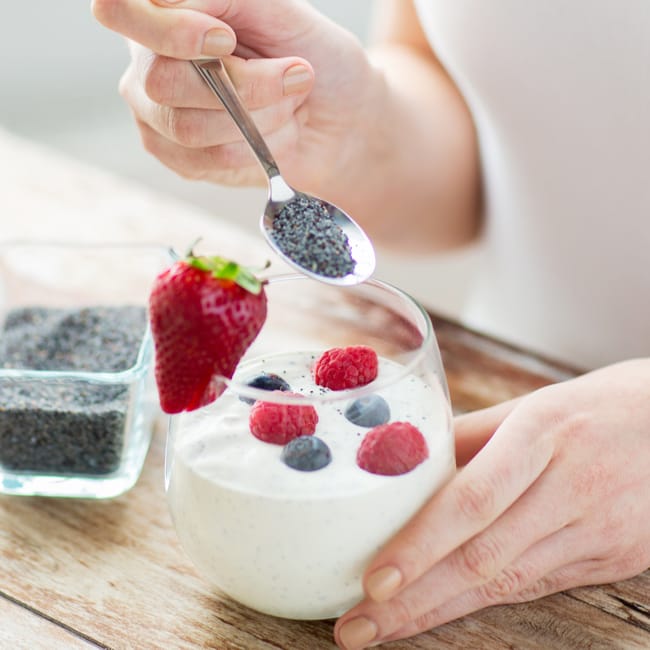
Why Is Fiber So Important After For Those 40 + Up?
When we don’t eat enough fiber, Hunnes explains, our gut microbiome is less healthy. If your diet looks a lot like the "standard American diet," which is "high in animal products and low in fresh fruits and vegetables and whole grains," Hunnes notes that this might mean you "do not get enough fiber" in your diet. This, she says, can lead to "constipation, cramping, inflammation, indigestion, colon polyps, and an overall sense of just not feeling so great."
Diverticulosis is actually a "fairly common result of a low fiber diet," Hunnes continues, and can eventually lead to diverticulitis, which is an inflammation of the diverticula in the intestinal tract. This, she continues, "can lead to pain and cramping." In general, most people would feel constipation as their initial indication that they are not getting enough fiber in their diet, Hunnes concludes, and the way to combat this is by consuming more fruits, veggies and whole grains, while also seeking a doctor for more personalized advice.



